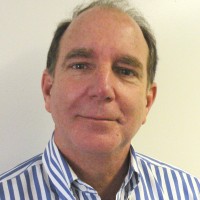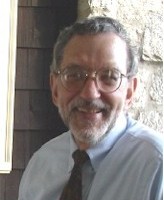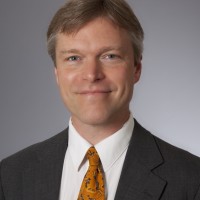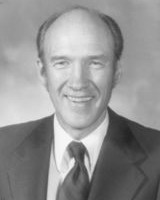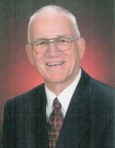Remembering Chernobyl and being proactive
 A recent event in Vermont was a Chernobyl 25th anniversary gathering at Dartmouth College's Dickey Center. The event featured a photo exhibit and a panel presentation. Former ambassador to Belarus in the 1990s, Kenneth Yalowitz, heads the center and he chaired and sat on the panel. Yalowitz was on a larger panel on Chernobyl on its 20th anniversary five years ago. This year's event was sponsored by the Sierra Club and was widely advertised in the local press.
A recent event in Vermont was a Chernobyl 25th anniversary gathering at Dartmouth College's Dickey Center. The event featured a photo exhibit and a panel presentation. Former ambassador to Belarus in the 1990s, Kenneth Yalowitz, heads the center and he chaired and sat on the panel. Yalowitz was on a larger panel on Chernobyl on its 20th anniversary five years ago. This year's event was sponsored by the Sierra Club and was widely advertised in the local press.
Prof. Bob Hargraves had asked if he could be on the panel, too, but he was not accepted. Similarly, Meredith Angwin, who also writes these View from Vermont posts for the ANS Nuclear Cafe, was asked to be in a high-school debate this month in Putney, Vt., against Duane Peterson from the Vermont Public Interest Research Group. When Meredith asked for a moderator who could strictly control the time each participant would be given to speak, Peterson backed out. Meredith and Peterson will now give presentations on successive Fridays. Peterson's was on May 6, which Meredith attended, and Meredith's is scheduled for May 13. Why the insistence on a moderator? Meredith and I have learned the hard way that anti-nuclear debaters will monopolize the time if given a chance.
On Easter Sunday, a march from the Indian Point nuclear plant in New York ending at the Vermont Yankee nuclear plant, and a demonstration at Vermont's State House, got practically no press coverage. Yet, syndicated stories in state newspapers had been linking Chernobyl to the Fukushima event.
The Dartmouth event provides insights to the state of the anti-nuclear movement. The photo exhibit at the event was small and was displayed ahead of the panel and presentation. Bob Hargraves, Peter Roth, and I attended. As we entered the small auditorium that could hold about 120 people, a student asked us to sit in the middle so that the video recording would show all seats filled. Only about 40 people were there.
Ambassador Yalowitz introduced the panel and then sat down to become a member of it. In brief remarks, Yalowitz related difficulties with corruption in getting aid through to Chernobyl accident victims.
The other panel member was Kevin Kamps, from Beyond Nuclear, in Washington, DC. He has been in Vermont before, testifying before the legislature and at local events. He had a PowerPoint presentation, and went on for about an hour, before the Sierra Club program chair cut him off. There was little time for questions. The PowerPoint's title was "Half Lives and Half Truths: Fukushima and Chernobyl." The events in Japan were described by Kamps as he saw them. Then he linked the GE MK I reactor containment-used at several of the Fukushima plants and at Vermont Yankee and 22 other plants in the United States-to the accident. He repeated the quote that the MK I containment "has an 80 to 90 percent chance of failure," but this time the quote was attributed to Harold Denton, former official at the Nuclear Regulatory Commission, commenting on the WASH -1400 report. Then there was a listing of the various estimates of projected eventual deaths from the Chernobyl accident, all the way from the International Atomic Energy Agency's 40 projected deaths up to a Ukrainian's 900,000+ projected fatalities.
The presentation then launched into an attack on Entergy, which operates Vermont Yankee, with a slide having the chief executive officer's picture and his salary for the past two years, and a listing on the updates at Entergy's Palisades nuclear plant, in Michigan, supposedly committed to and not yet done. Kamps included the fantastic statement that in the fire protection planning, operators will be used for some manual actions on "suicide missions!"
Those present included the "usual suspects" and only two or three students, at least one from the Ukraine that I spoke to afterward. Bob Backus, a lawyer for New Hampshire who first became involved in the opposition to the Seabrook nuclear plant in the 1980s, was there with his wife. Backus is now a board member of Beyond Nuclear. This event can be described as "preaching to and pumping up the choir."
Of interest is the formation of new group-Pilgrim: Make Us Safe Today-in Massachusetts opposing the Pilgrim nuclear plant. Existing groups, including one from Vermont, have publicly supported it and encouraged their own members to attend the new group's first rally.
New groups seem to form from the efforts of one or a few individuals. A group rarely heard from, the Vermont Yankee Decommissioning Alliance, staged the Vermont State House event. This group joins with others on occasion, but is not as active as the main opponent groups. It did participate in the meeting with the NRC's chairman in Brattleboro last summer.
The nuclear industry finds itself responding to charges, most of which have been around for a long time. The charges have gained credibility with the media and many of the public because they have not been refuted. As former Sen. Alan Simpson said, "A charge unanswered is a charge believed." President Obama made this mistake with the issue of his birth certificate. He let the charge circulate and fester. Over time, it gained credibility. The nuclear industry has been doing the same thing for years. With the industry's response to the Fukushima accident, it looks like we are changing our ways and becoming proactive communicators. We need to continue public and media outreach to keep the nuclear renaissance growing.
What all this proves is that there are only a relatively few people driving the opposition to nuclear power. They are dedicated to this course of action as a lifetime pursuit. We can never expect to change their minds, because their decision is emotional. We have to win the center in the political debate in order to succeed.
Howard Shaffer has been an ANS member for 35 years. He has contributed to ASME and ANS Standards committees, ANS committees, national meeting staffs, and his local section, and was the 2001 ANS Congressional Fellow. He is a current member of the ANS Public Information Committee and consults in nuclear public outreach. He is coordinator for the Vermont Pilot Project.
Shaffer holds a BSEE from Duke University and an MSNE from MIT. He is a regular contributor to the ANS Nuclear Cafe.


